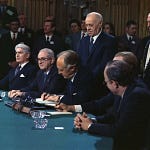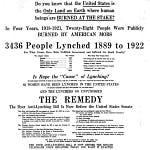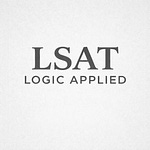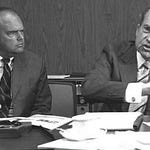On this day in legal history, August 22 1996, welfare as we knew it was ended and millions of folks living in precarity had the rug ripped out from under their feet.
The so-called "Welfare to Work" bill signed by President Bill Clinton in August 1996 was a contentious piece of legislation that aimed to move individuals from welfare to employment, premised on the flawed notion that those unable to work were simply unwilling to work. The downsides of this reform were significant. Critics, including three assistant secretaries at the Department of Health and Human Services who resigned in protest, argued that the law destroyed the federal safety net, leading to increased poverty and lower income for single mothers. Some individuals were moved into homeless shelters, and states were left free to eliminate welfare entirely. Specifically, while the intention was to shift mothers from welfare to work, many found that they were not earning enough to thrive, and others were pushed off welfare rolls due to logistical challenges such as lack of child care or failure to receive notification. Despite a decline in welfare and poverty rates in the late 1990s, the negative impacts of the reform on the most vulnerable populations raised serious concerns about the true success of the legislation.
In the light of history, it is clear the reform didn’t achieve its stated goal of ending poverty – not by a long shot. While the reform initially seemed to be working, with unemployment dipping and poverty falling, later research has cast doubt on its efficacy. The reform reduced welfare rolls and increased employment, but it also reduced the incomes of the poor, especially the poorest of the poor. Transitioning from welfare to work may have gotten people jobs, but those people didn't actually come out ahead monetarily, as welfare would have paid better than work did. There was an increase in deep poverty, the fraction living below 50 percent of the poverty line. The availability of money as a kind of slush fund for states created an incentive for states to discourage potential beneficiaries from applying. Critics argue that the legislation got virtually every technical detail wrong, giving states too much flexibility and creating perverse incentives for states to seek alternative spending routes for money earmarked for the poor. Even many conservatives have expressed concerns about the state incentives created by the block grant. The initial assessments of the reform were overly optimistic, and there's a broad consensus outside the law's core supporters that something went deeply wrong. The failure to allow people to apply for aid, the atrophy of work programs, and the diversion of funds to other programs were unintended consequences that have led to a call for change.
Jill Nelson - Apocalypse Now, The Nation (1996)
"If the goal was to get rid of poverty, we failed": the legacy of the 1996 welfare reform - Vox
The law firm of the foreseeable future will be different in three critical ways: working with AI, evaluation and education, and structure. First, AI will be embedded at every level of an attorney's work, augmenting individual tasks and transforming the delivery of legal services at the practice level. This will radically optimize tasks, allowing attorneys to focus on unique work and create opportunities to scale. Second, AI will change the skills that clients expect from legal counsel, emphasizing complex problem-solving and strategic thinking over research and writing. It will also refine how lawyers are trained, calling for better mentoring and teaching, and will be central to how both attorneys and clients consume information. Third, the structure of law firms may change, with exceptions to the prohibition of ownership by non-lawyers pointing to forces that may lead to significant changes in the future. Law firms' limited ability to invest in technology may be a disadvantage, but unlocking efficiencies with AI could change the landscape. The future law firm may be able to deliver services at scale with high leverage, potentially transforming the traditional structure and approach of legal practices. These changes reflect a future shaped by current forces, particularly the integration of AI into the legal field.
A pure editorial note here, I myself am always skeptical of claims that technology will radically disrupt entrenched power structures. If I had to put money on how AI changes law firm culture and the legal field, it will be to redound to the benefit of those in power now, and benefits to labor will take a long time to trickle down to junior attorneys and paralegals.
Law Firms of the Future Will Be Different in Three Critical Ways
New Jersey is facing a severe judge shortage, freezing nearly 4,000 divorce proceedings and around 4,700 other family law cases. Some counties are entirely blocked from holding any divorce trials due to the lack of judges. The delays for contested divorces are sometimes measured in years, far exceeding the state's guideline of resolving cases within 12 months of filing. The shortage has persisted due to New Jersey's unique "courtesy" appointment system, where any senator can block the appointment of a judge in their home county, and accelerated retirements have worsened the situation. New Jersey currently has 57 vacancies, nearly double the system's manageable limit of 30. The backlog has broad spillover effects, affecting other civil litigants and leading to dire consequences for the injured and elderly. Political obstacles, including the "courtesy" appointment system and increased partisanship, have contributed to the dearth of judges. Despite recent confirmations, the situation is described as a "judicial crisis," and a resolution appears unlikely until at least November. The shortage has led to human tragedies, including difficulties in securing child passports, enrolling children in school due to custody battles, and forced cohabitation with abusive partners.
New Jersey Judge Shortage Freezes Couples in Messy Divorce Cases
Activision Blizzard, the maker of "Call of Duty," will sell its streaming rights to Ubisoft Entertainment to gain approval from Britain's anti-trust regulator for its $69 billion sale to Microsoft. The original acquisition, announced in early 2022, was blocked by the Competition and Markets Authority (CMA) over concerns that Microsoft would dominate the emerging cloud gaming market. The CMA maintained its decision to veto the deal, leading to a restructured agreement. Under the new terms, Microsoft cannot release Activision games exclusively on its Xbox Cloud Gaming service or control licensing terms for rival services. Ubisoft will acquire cloud streaming rights for Activision's existing and new games for the next 15 years, except in Europe. The CMA will review the new proposal, with a Phase 1 process ending on Oct. 18, possibly followed by a longer Phase 2 examination. The deal marks a significant concession by Microsoft and a win for the CMA, reflecting its tough stance on tech deals since Brexit. Ubisoft's shares were up more than 7% following the news.
Microsoft, Activision to sell streaming rights to secure biggest video gaming deal
A parents group, backed by a conservative legal organization, has asked the U.S. Supreme Court to consider whether an admissions policy at Thomas Jefferson High School for Science & Technology in Virginia is racially discriminatory. The policy, adopted in 2020, was aimed at diversifying the student body and was considered race-neutral. It eliminated a standardized test, capped the number of students from each middle school, and guaranteed seats for top students from each. Following these changes, the percentage of Asian-American students fell, while the share of Black and Hispanic students increased. A group called Coalition for TJ sued, claiming the policy violated the equal protection clause of the 14th Amendment. While a U.S. District Judge sided with the parents, the 4th U.S. Circuit Court of Appeals reversed the decision. The Supreme Court's response is pending.
U.S. Supreme Court asked to hear high school admissions case concerning race | Reuters
The Inflation Reduction Act of 2022, which includes provisions for transitioning industry away from coal and natural gas, also introduces a 45V tax credit for hydrogen produced with low greenhouse gas output. This means that the hydrogen must be produced by clean electricity to qualify for the tax credit. While some advocate for maintaining or enhancing this restriction, others worry that it may stifle the hydrogen industry's growth. In my column I suggest that the solution lies in better funding and streamlining the clean electricity sector and its related tax credit regime. The EU has already implemented a renewable hydrogen regulatory framework that emphasizes connecting new hydrogen generation systems to new renewable energy systems. The U.S. must also recognize that clean hydrogen's fate is tied to clean energy systems like solar and wind. Uncertainty in the clean energy sector, particularly regarding tax credit eligibility, may be slowing down the production of clean electricity systems. To foster the renewable hydrogen industry, the U.S. must streamline and clarify the clean electricity tax credit system, possibly aligning with the EU's approach. The policy should focus on locating and clarifying bottlenecks in existing regulatory frameworks and tax incentives, redirecting investments earmarked for hydrogen to grow the clean economy.
Funding Clean Electricity Will Help Grow the Hydrogen Economy













